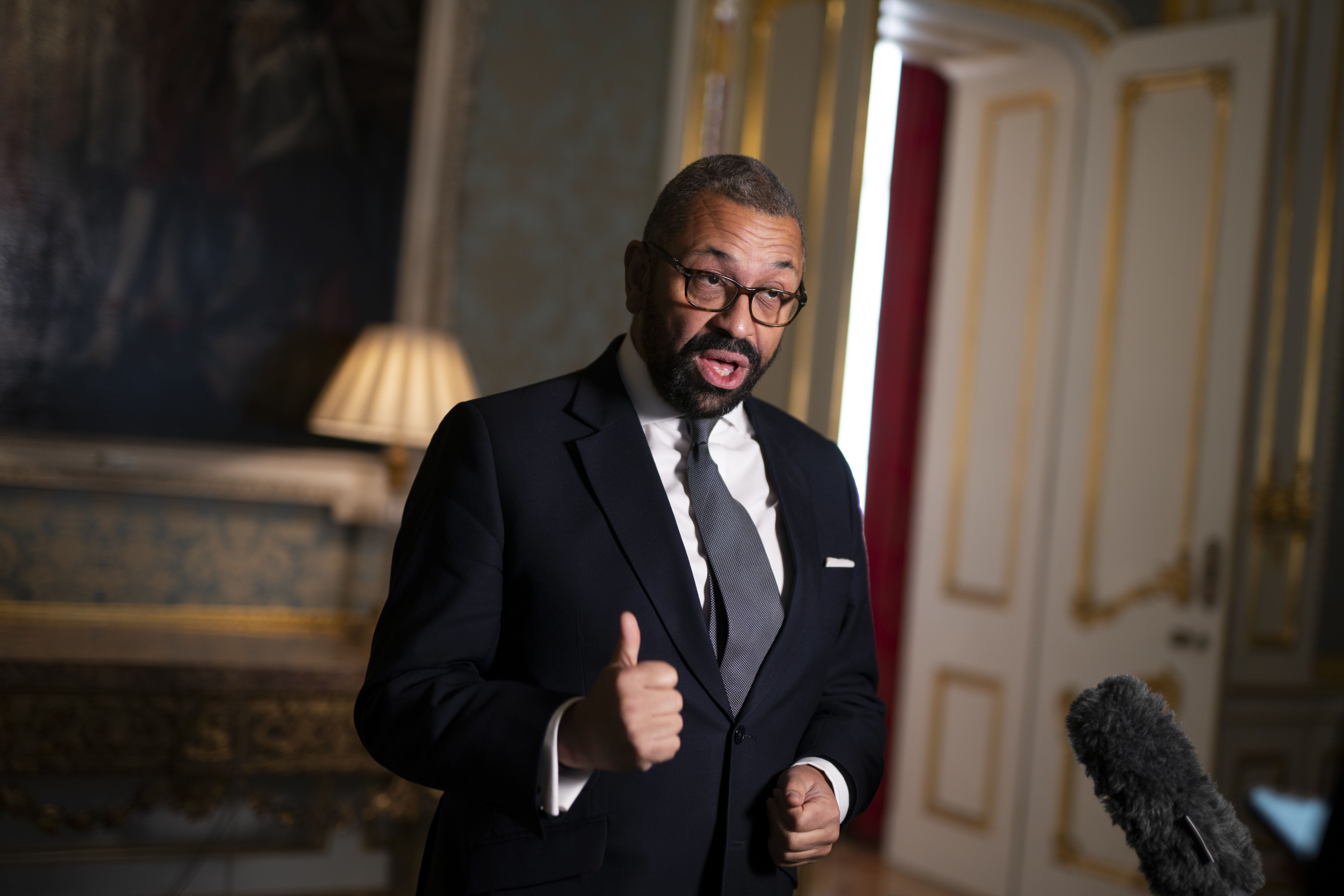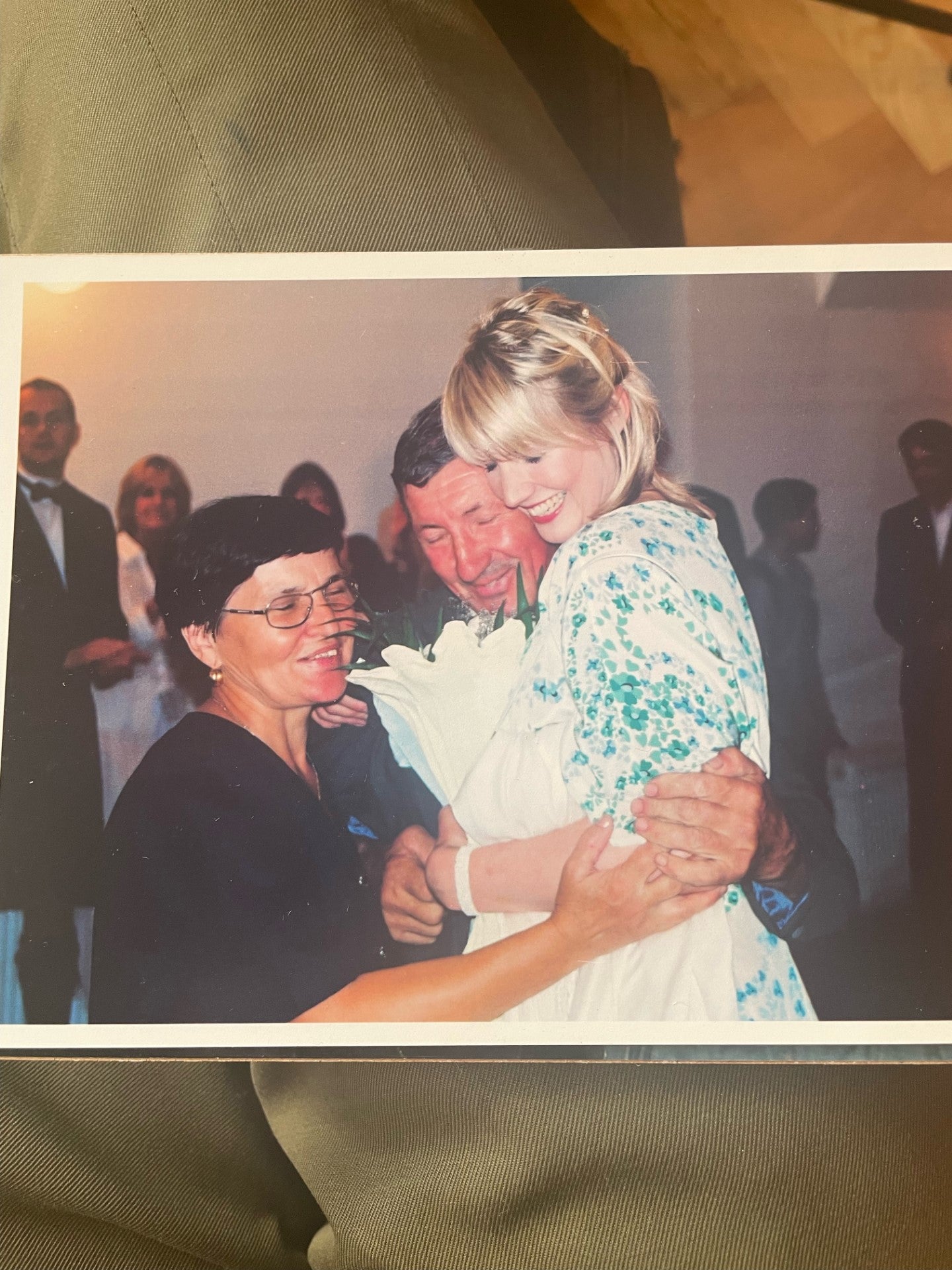‘It makes me feel sick’: Mixed nationality couples share their outrage at new Tory immigration plan
The Home Office’s latest immigration plan jeopardises the future of thousands of international families
Your support helps us to tell the story
From reproductive rights to climate change to Big Tech, The Independent is on the ground when the story is developing. Whether it's investigating the financials of Elon Musk's pro-Trump PAC or producing our latest documentary, 'The A Word', which shines a light on the American women fighting for reproductive rights, we know how important it is to parse out the facts from the messaging.
At such a critical moment in US history, we need reporters on the ground. Your donation allows us to keep sending journalists to speak to both sides of the story.
The Independent is trusted by Americans across the entire political spectrum. And unlike many other quality news outlets, we choose not to lock Americans out of our reporting and analysis with paywalls. We believe quality journalism should be available to everyone, paid for by those who can afford it.
Your support makes all the difference.Thousands of mixed nationality couples face “sickening” uncertainty after new immigration legislation doubled the earning requirement for obtaining a spouse visa.
As part of the new five-step immigration plan, partners hoping to settle in the UK on a spouse visa will only be able to do so if their husband or wife is earning £38,700 – a £20,000 increase from the current figure of £18,700.
The new rules come into force in April, but the Home Office says those who are on a family visa of less than £38,700 will not be asked to immediately present their yearly salary, but it has not clarified what will unfold when they come to renew their visa.
The increase has sparked concern in many marriages, MP Nadia Whittome said: “Three-quarters of British workers won’t be able to get a visa for a spouse from abroad.”
Polly Dechuson, 31, was travelling across Thailand when she fell in love with her husband Saroch, 43. They decided to move back to Polly’s homeland this year to raise their kids, aged two and four.

The young family already faced a bureaucratic costly nightmare, says the mother-of-two, as Saroch will have to return to Thailand in January when his visit visa expires so he can apply for a spousal visa from there.
Polly and Saroch have been together for eight years, they met in 2016 whilst they both carried out conservation work in South Thailand before marrying in Phuket in 2018.
The couple were saving up over £3,000 to be able to afford the NHS fee which is between £1,500 and £1,800 and £1,846 for the spousal visa, which has to be renewed every two-and-a-half years, added Ms Dechuson.
Ms Dechuson is currently juggling raising two children while job hunting but has had no positive responses so far, and even if she is successful in her search, the estimated salaries are between £20,000 and £30,000.
Now the family-of-four face a rollercoaster of uncertainty and fear they will be “forced” back to Thailand.
Ms Dechuson, from Manchester, said: “I don’t have the words, Thailand was lovely but it was unsustainable for our long term.
“It might be our only option, it’s terrifying to think about. Me and our kids are British. It feels like we’re being forced out. I just happened to fall in love with someone who isn’t British.
“It’s the idea if you don’t earn £38,000 you can’t fall in love with someone.”
The mother-of-two says she understands the need for immigration control but feels the government are punishing the couple for trying to do it legally.
Ironically, the mother says she has to rely more on the state now as she has to claim benefits to help look after her children since her husband cannot work here legally and she will be the sole carer when he has to return to Thailand.
“It’s money people don’t have, they are so out-of-touch with the everyday person. It’s not fair to my husband or kids who might get to see their father once a year,” added Polly.
The concerned mother explained the drain the long distance has on their marriage and the separation anxiety her children suffer when they spend long periods apart from their parents.
“Love isn’t that simple. The idea you can only be attracted to British people, that is the foundation of racism. It’s an absurd way of thinking.
“We have been married over five years, we have two kids. We’re not trying to trick the system. He wants to come on this visa so he can work. It’s infuriating.
“It’s such a catch-22, if he was here, I wouldn’t have to get help from the government. Now I’m more reliant.”

Josephine Whitaker-Yilmaz, 37, fears her family’s future and “feels sick” at the thought of her family being torn apart.
She was a tourist and her husband Medet Yilmaz, 45, was the tour guide when the young couple met outside the Hagia Sophia.
The pair married in 2014 and decided to return to the UK in 2021 to raise their children in Leicester.
Mr Yilmaz , who works as a delivery driver, gained his spousal visa which expires in two-and-a-half years, meaning he will have to redo the application process in June 2024, however the couple do not know if they will face the new regulations.
Ms Whitaker-Yilmaz, a policy and social affairs manager for Praxis, from Leicester, said: “It makes me feel sick, it’s scary. It’s my right as a Brit to love, marry and live with who I want.
“My husband’s work is fairly insecure, it’s a really big worry we may not be able to meet the new requirement.
“If we can’t meet it, we face a horrific choice, we might have to think about leaving or my husband would have to leave.”
Ms Whitaker-Yilmaz described the overnight policy change as “short-sighted” and “insulting”.
She says the minimal total fee as it stands for a partner to come over on a spousal visa is over £3000.
Dr Tessa Dunlop, 49, fell in love with her now husband Dan, 42, when he was a 23-year-old student and she was visiting the city of Iași, in Romania.
Even then the couple had to overcome numerous hurdles for Dan to be able to settle here. Dan and Tessa married in 2003, and have two children aged five and 15.
If the Historian met her partner with the new threshold in place, they would not have been able to build a life and have the family they do now.

Dr Dunlop, a historian from London, said: “This is brutal on every level. It’s particularly punitive to young people who are likely to fall in love and start a family.
“We would have had to leave the country, my earnings wouldn’t have been enough to keep him in the country, he was on a student visa.
“It’s absolutely bonkers, the Conservatives have always supported the nuclear family but now it seems they don’t if one member isn’t a British national.”
The father-of-two got a job as a data scientist within months of moving but now would not have the same opportunity, the historian explains it is a vicious cycle as partners need to be in the country to be able to gain employment.
Dr Dunlop underlined the precarious nature of freelance work where earnings can fluctuate greatly from one month to the next.
“This is an anti-British policy. If your child marries a German person, they will move to Germany.
“Ironically, even two years ago I couldn’t afford my husband to be here, and I have three degrees,” said the historian.
She explained the policy would encourage Brits in love to emigrate overseas to their partner’s countries and could affect women who hope to have children.
Caroline Coombs, Chief Executive Officer of Reunite Families UK, said: “Our community of couples and families have been utterly devastated by the intended increase to the Minimum Income Requirement (MIR).
“The government repeatedly ignore the sufferings that the policy has already have caused at its current threshold and which continues to cause countless unnecessary damage to British citizens and their families across the country.
“The emotions are strong within the community but this has galvanised people into action. Threatening your family life will do that to a person. We will use this energy to supercharge this fight for a better and more humane immigration system”.
In the Home Office’s Net Migration Press Notice outlining the proposals, James Cleverly said: “My plan will deliver the biggest ever reduction in net migration and will mean around 300,000 people who came to the UK last year would not have been able to do so.
“I am taking decisive action to halt the drastic rise in our work visa routes and crack down on those who seek to take advantage of our hospitality.”

Join our commenting forum
Join thought-provoking conversations, follow other Independent readers and see their replies
Comments